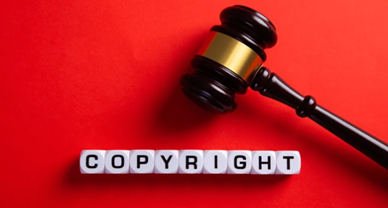Limited Licensing: An introductory overview
Introduction
Intellectual Property Rights are intangible rights All rights related to the property are exclusively reserved with the copyright holder. It serves the purpose of having Intellectual Property Rights in existence that is to give legal rights for the protection of the invention and creation. However, under some exceptions, a person other than the owner could be given a few rights for the utilization of the property. Intellectual Property License is an agreement between the owner of the Intellectual Property and the party to whom the rights are being given in exchange for a fee or royalty. The IP Owner and the third party are the licensor and the licensee respectively. Such a person can use it to serve their purpose in a limited manner for a particular period without having sole ownership of the property. The present article looks into a comprehensive landscape of Limited License.
Main Blog
Unlicensed use of any content registered under the Copyright Act, 1957, violates the exclusive rights of the owner and amounts to copyright infringement. It includes reproduction, the preparation of derivative works, distributing copies by sale or rental, and public performance or display. Hence, it is necessary to obtain permission from the owner of the Intellectual Property of that creation or invention. It lets the Licensor grant a limited License for a fixed period or purpose without losing out on the ownership of it.
The limitations of use need to be specified and it has to be clearly stated that the Licensor retains full ownership rights. The term, termination, consideration, and most importantly, the obligation to legally abide by the confidentiality of information shared between both parties shall be duly complied with. The object of the License shall be clear, it can range from granting a limited license to having copyright over a song and the conditions have to be outlined accordingly in clear and precise terms. A proper code of guidelines could be set up to be followed by the Licensee to prevent unambiguity. The period and procedures to be followed shall be stated followed by specifying if there is a breach of the agreed terms of use.
A limited License agreement can be beneficial for both the Licensor (the party granting the License) and the Licensee (the party receiving the license).

Limited Licensing allows you to generate revenue from your IP without relinquishing your rights. The License fees and royalties can provide income to help further develop the content or technology. As a licensee, a limited license agreement allows you to gain access to IP that you otherwise would not have rights to use. Although you do not own the IP, you can leverage it to enhance your business for the duration of the license term. The lower upfront costs of a license versus an acquisition also make it an attractive option if budgets are tight.
Limited licenses also have fewer risks than outright purchases of IP. If the technology or content does not provide the value you expected, you are not stuck with it long-term. The licensor still assumes responsibility for maintaining and defending the IP, saving you time and money. The the end of the license period, you can simply walk away if needed.
For both parties, a limited license agreement provides an opportunity to test the waters and gain experience before diving into a long-term, high-cost commitment to IP ownership or transfer. With the right terms in place, it can be a win-win for licensors and licensees.
Recent Trends in Limited Licensing
Granting limited rights creates a potential for the Licensor to generate revenue and there has been a rise in Limited Licensing because of the avid use of technology advancement and content available online.
One of the recent high-profile case studies or real-life examples to illustrate the practical application of limited licensing is the deal between Netflix and Marvel. In 2012, Netflix obtained an exclusive multi-year deal to stream live-action TV series based on Marvel superheroes like Daredevil, Luke Cage, and Jessica Jones. However, Marvel (owned by Disney) retained the rights to those characters and Intellectual Property. The shows were canceled by Netflix and the rights reverted to Marvel once the deal ended between them. This allowed Marvel to later make new deals to continue the series on other platforms.
Limited licensing provides an option beyond the binary “all or nothing” approach to Intellectual Property.
Conclusion
Limited Licensing opens the door for potential partnerships based exclusively on the terms of how the Licensor wants to grant the use of his IP. It helps you protect your creation and you can share your ingenuity without losing independence. The Licensor does not need to sign away the Intellectual Property, it could be given for a limited time and purpose too.
Author:- Kalyani Pungale, in case of any queries please contact/write back to us at support@ipandlegalfilings.com or IP & Legal Filing.
References.
https://www.wipo.int/export/sites/www/sme/en/documents/pdf/ip_panorama_12_learning_points.pdf

